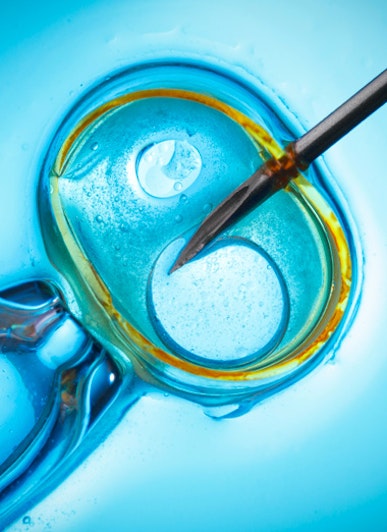COVID -19 and Pregnancy
Possible Transmission of COVID-19 From an Infected Mother to Her Newborn
Controversy exists regarding whether SARS-CoV-2 can be transmitted in utero from an infected mother to her infant before birth. It is important to understand that this disease has only been recognized for only 3 months, and therefore, there are many unanswered questions regarding this virus.
Just this week, there have been three reports in the Journal of the American Medical Association (JAMA) regarding these issues.
In the first report, a series of 9 pregnant women in China found no mother-to-child transmission of the virus. A recent research letter reports on a mother who was permitted to the hospital at 34 weeks of pregnancy and found to have COVID-19 infection. Because of respiratory complications, she was delivered at 38 weeks by cesarean section. Before birth, testing for virus in her vaginal secretions was negative.
The baby had no symptoms and was immediately quarantined from the mother. A viral testing of the baby showed no evidence of an active infection with the virus at birth and persisted in being negative up to 16 days of age. At 2 hours of age, the COVID-19 IgG level was 140.3 and the IgM level was 45.8 (normal IgM and IgG <10). At 16 days, the IgM (11.75) and IgG (69.94) levels were still elevated.
The elevated IgM antibody level suggests that the neonate was infected in utero. IgM antibodies are not transferred to the fetus via the placenta. The infant potentially could have been exposed for 23 days from the time of the mother’s diagnosis of COVID-19 to delivery. Although infection at delivery cannot be ruled out, IgM antibodies usually do not appear until 3 to 7 days after infection, and the elevated IgM in the neonate was evident in a blood sample drawn 2 hours after birth.
In the second report from China, six pregnant women with mild clinical manifestations of COVID-19 were delivered by cesarean sections in their third trimester. The infants were quarantined from the mothers right after delivery. All infants had antibodies detected in their serum. Two infants had both IgG and IgM detected. None of the infants had virus detected in throat swabs and blood samples. None of the infants presented with any symptoms of disease. However, virus-specific antibodies were detected in neonatal blood sera samples. Because IgG is passively transferred across the placenta from mother to fetus beginning at the end of the second trimester and reaches high levels at the time of birth, this is not unexpected. However, IgM that was detected in 2 infants is not usually transferred from mother to fetus because of its larger macromolecular structure. Alternatively, IgM could have been produced by the infant if the virus crossed the placenta during pregnancy.
In a third study from China, Thirty-three neonates were born to mothers with COVID-19, 3 neonates were identified with with COVID-19. All three patients were delivered by cesarean section at term because of maternal COVID-19 pneumonia. The three infants with positive COVID-19 showed positive nasopharyngeal and anal swabs for all Covid-19 on days two and four of life but were negative by day 6-7. Samples taken from patients, including amniotic fluid, cord blood, and breast milk, were negative for COVID-19. The most common symptom was shortness of breath (4 of 33 neonates). No deaths were reported. The investigators did not perform IgG or IgM testing on the infants.
In an editorial in the March 26 issue of JAMA responding to these reports, the authors applauded the researchers for exploring the possibility that COVID-19 virus might be passed to the neonate. However, they critically analyze the available data and had many questions that cannot yet be answered.
The suggestion that in utero transmission occurred rests on the detection of IgM in 3 neonates. They explained that IgM is a challenging way to diagnose congenital infections. Although IgM antibodies are too large to cross the placenta and so detection in a newborn reasonably could be assumed to reflect fetal production following in utero infection; however, congenital infections are not diagnosed based on IgM detection because IgM assays are prone to false-positive and false-negative results, along with cross-reactivity and testing challenges. Generally an in utero infection is confirmed by the presence of the infectious agent in the neonate.
Additionally, the kinetics of decline of the IgM was uncharacteristically rapid compared to the usual rates of decline in other congenitally transmitted infections. The neonate’s IgM value declined from 45.8 at 2 hours of life to 11.7 on day 14 of life, just above the threshold of 10 that constitutes a positive result. This decline in IgM concentration is very rapid. In infants with congenital rubella syndrome, rubella-specific IgM can be detected for several months, with about a third having detectable IgM from 6 months to 2 years of age. Likewise, IgM following congenital Zika infections can persist for a year or longer. While the kinetics of IgM production and decay in COVID-19 infections are not yet known, the rapid decline reported in the report raises the possibility that the laboratory findings in these 3 infants are not evidence of true congenital infection but rather could represent artifact.
In conclusion, the editorial stated that "given the modeling showing that a significant percentage of the world’s population, many of them pregnant women, will be infected over the next weeks or months—this issue is one that deserves careful consideration. However, at this time, these data are not conclusive refuted or prove in utero transmission."
It is also noteworthy, that none of the reports suggested any significant disease in the infants that could be attributed to the COVID-19 virus. However, it is important to realize that these are very small numbers of cases and more importantly they all involve patients who were infected in the third trimester of pregnancy. As this pandemic evolves, our understanding of any effects that the virus may have on pregnancy will also continue to evolve.








